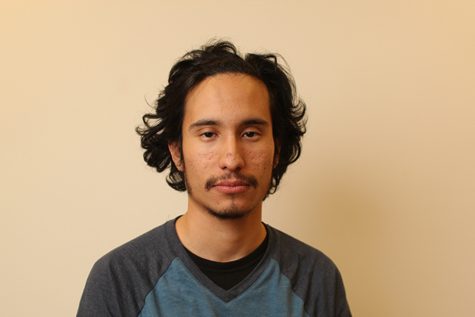Puente program instills educational foundation
Peer led tutoring adds to success of classes, workshops
Oct 29, 2015
Replicating the Puente Project’s ideals, the Puente chapter on campus and Puente club strive for bettering the lives of educationally underserved students.
The mission statement of Puente is to increase the number of underserved first-generation students who enroll in four-year colleges and universities, therefore earning degrees and returning to the community as leaders and mentors.
Counselor Norma Valdez-Jimenez said three components make up the Puente model — counseling, writing and mentoring.
Valdez-Jimenez, who also serves as the Puente club’s adviser, said the model provides a learning community for Puentistas, a one-year intensive curriculum followed by program support until the Puentista transfers.
She said Latinos are definitely attracted to the program, but it is open to anyone.
The graduating cohort from last spring semester had 27 students transfer, the highest number yet, she said.
The Puente club highlights local community involvement and field trips to different universities as part of its activities.
Health and human services major Ariana Saechao said the club helped her to learn to develop time management skills and provided opportunities for visiting different campuses in mind for transferring around the bay area.
“We’ve visited elementary schools as well to see which ones we could volunteer at to clean up debris,” Saechao said.
The club performs a semesterly cleanup of Rheem Creek which runs through the arboretum on campus.
Since its inception at Contra Costa College in 2002, the administration has been committed to keeping Puente chapter alive although the program has been limited in the capacity of students it can serve due to a small dedicated staff.
The model contains two semesters of English and personal development courses, one-on-one mentoring and counseling and field trips to four-year colleges and universities.
The Puente English class outline features a rigorous two-course sequence, teaches students to benefit from peer writing response groups and integrates Latino literature with emphasis on issues relevant to Latinos in the U.S.
Mentoring offers students support from professionals who understand the process of higher education, models of success from within the community and opportunities for critical assessment of career and life choices.
Elvia Ornelas-Garcia, English, philosophy and humanities department chairperson, said most first-generation college students do not have models of success and that mentors having gone through the educational experience, fills that void.
“More importantly these mentors represent their family in a viable way, where students can come to them for help,” Ornelas-Garcia said.
She also said students within the Puente program end up feeling challenged academically whereas they had not experienced one before.
“What more can you ask for as teacher when you see the progress (made) and the appreciation for the challenge even though it is hard work but the end result benefits their academic and personal goals,” she said.
CCC alum and Puente mentor John Moreno said the values instilled in him by Puente kept him on a steady course throughout college and helped in discovering what his career path was.
“I found my calling in helping people and having that one Puente (mentor) helped me out (enormously) and taught me you just need one person to do that for you.
“Puente has given so much to me. I want to give back to fulfill the mission statement, which is to transfer and to come back as a mentor,” Moreno said.


